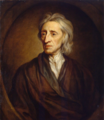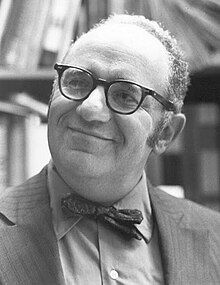Portal:Libertarianism
Introduction
| Part of a series on |
| Libertarianism |
|---|
Libertarians advocate for the expansion of individual autonomy and political self-determination, emphasizing the principles of equality before the law and the protection of civil rights, including the rights to freedom of association, freedom of speech, freedom of thought and freedom of choice. They generally support individual liberty and oppose authority, state power, warfare, militarism and nationalism, but some libertarians diverge on the scope and nature of their opposition to existing economic and political systems. (Full article...)
Selected article
Minarchism is a libertarian political ideology which maintains that the state's only legitimate function is the protection of individuals from aggression, theft, breach of contract and fraud (such states are sometimes called night watchman states). Some minarchists defend the existence of the state as a necessary evil. Minarchism is closely associated with right-libertarianism, propertarianism and classical liberalism.
Samuel Edward Konkin III, an agorist, coined the term in 1971 to describe libertarians who defend some form of compulsory government. Konkin invented the term "minarchism" because he initially felt dismayed of using the cumbersome phrase "limited-government libertarianism".
Selected quote
| “ | I see America with half the number of prisons, half the number of prisoners, ten thousand fewer homicides a year, inner cities in which there's a chance for these poor people to live without being afraid for their lives, citizens who might be respectable who are now addicts not being subject to becoming criminals in order to get their drug, being able to get drugs for which they're sure of the quality. You know, the same thing happened under prohibition of alcohol as is happening now.
Under prohibition of alcohol, deaths from alcohol poisoning, from poisoning by things that were mixed in with the bootleg alcohol, went up sharply. Similarly, under drug prohibition, deaths from overdose, from adulterations, from adulterated substances have gone up. |
” |
| — Milton Friedman (1912–2006) America's Drug Forum (1991) |
Selected picture
 |
General images
Selected biography -
Murray Newton Rothbard (/ˈrɒθbɑːrd/; March 2, 1926 – January 7, 1995) was an American economist of the Austrian School, economic historian, political theorist, and activist. Rothbard was a central figure in the 20th-century American libertarian movement, particularly its right-wing strands, and was a founder and leading theoretician of anarcho-capitalism. He wrote over twenty books on political theory, history, economics, and other subjects.
Rothbard argued that all services provided by the "monopoly system of the corporate state" could be provided more efficiently by the private sector and wrote that the state is "the organization of robbery systematized and writ large". He called fractional-reserve banking a form of fraud and opposed central banking. He categorically opposed all military, political, and economic interventionism in the affairs of other nations. (Full article...)
Related portals
Parent portals
Socio-political portals
Topics
Categories
Points of interest
| Points of interest related to Libertarianism on Wikipedia: History – Portal – Category – WikiProject – Alerts – Deletions – Assessment |
Associated Wikimedia
The following Wikimedia Foundation sister projects provide more on this subject:
-
Commons
Free media repository -
Wikibooks
Free textbooks and manuals -
Wikidata
Free knowledge base -
Wikinews
Free-content news -
Wikiquote
Collection of quotations -
Wikisource
Free-content library -
Wikiversity
Free learning tools -
Wiktionary
Dictionary and thesaurus




































